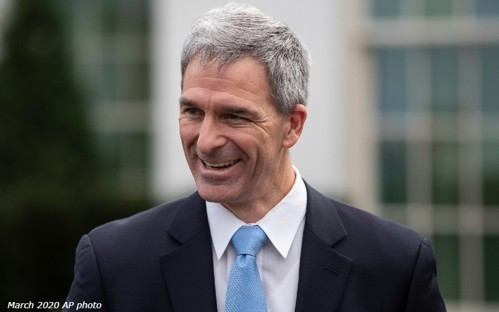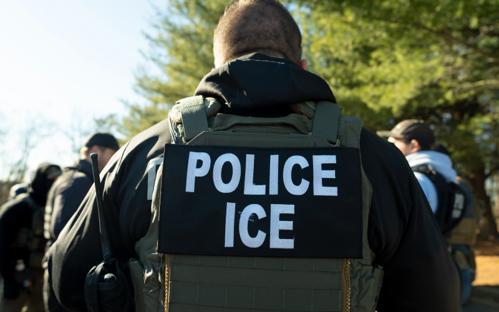The U.S. Military’s Northern Command said this week that 700 Marines have been mobilized and sent to the area. They will supplement a force of roughly 1,700 soldiers from the California National Guard.
Protests began over the weekend in response to raids by Immigration and Customs Enforcement (ICE) officials to take illegal immigrants into custody. More protests are planned in cities across the country.
“This is not what we want. It looks like a military state,” retired general and Delta Force commander Jerry Boykin said on Washington Watch Tuesday. “We want our military to be revered and respected, not feared and not used against its own citizens. Nobody wants to see another Kent State.”

It was members of the Ohio National Guard, not active-duty military personnel, who fired on Kent State students in May of 1970, but those on the receiving end of gunfire are unlikely to note the distinction. Four students were killed, nine others wounded, when Guard members fired 67 rounds over 13 seconds during a rally protesting the Vietnam War, the draft and the Guard’s presence on campus.
There are laws that prohibit the use of the U.S. military on U.S. soil – except during an insurrection. But Boykin argued it’s not a good move to put the military “into a situation where they could wind up shooting somebody, or there could be some kind of incident that would bring them into a courtroom where they would have to testify.”
Two soldiers under Boykin’s direction were present at the Branch Davidian compound outside Waco, Texas, in 1993. They were involved in intelligence gathering, but at the start of the raid the two soldiers were sent to another room and told not to watch.
“The reason was, they didn't want them to have to testify,” Boykin told show host Tony Perkins. That point was stressed by Army command before the two soldiers were sent to assist.
Paying attention to details
Immigration status aside, U.S. military personnel firing on people on American soil “would be the absolute worst thing that could happen,” Boykin said.
 As bad as it could become, the Trump administration right now is crossing T’s, dotting I’s and remaining within its legal authority, Ken Cuccinelli (right), a former acting deputy secretary for the Department of Homeland Security, told Perkins.
As bad as it could become, the Trump administration right now is crossing T’s, dotting I’s and remaining within its legal authority, Ken Cuccinelli (right), a former acting deputy secretary for the Department of Homeland Security, told Perkins.
The Insurrection Act of 1807 empowers the president to deploy U.S. armed forces and “federalize” National Guard troops under specific circumstances, an insurrection being one of those.
“It’s called the Insurrection Act, and the media loves that name because it sounds so inflammatory. But insurrection is only one of the four bases on which the president can invoke the powers found in the Insurrection Act. Others are just illegal assemblies, conspiracies, and so forth.
“We clearly have that going on here, where violence occurs and constitutional rights, including property rights, are impaired. We’re way past that threshold in Los Angeles,” Cuccinelli argued.
California Governor Gavin Newsom has filed a lawsuit against Trump over the deployment of California National Guard troops and U.S. Marines. The governor calls the decision a violation of his state’s sovereignty and a “blatant abuse of power” by Trump and Secretary of Defense Pete Hegseth.
The lawsuit, filed by California Attorney General Rob Bonta, claims that Trump is intentionally causing chaos for political purposes.
A federal judge Tuesday denied Newsom’s request to block Trump’s deployment of National Guard troops. A hearing on the lawsuit is set for Thursday.
“He’s going to lose that case because the president has the authority to utilize active-duty military,” Cuccinelli predicted.
The administration, he explained, does not have to achieve a high legal threshold here.
 “If the president decides that federal resources available are insufficient to accomplish the execution of federal law, like deportations by ICE agents, then he may use the Insurrection Act to supplement those forces. And in that situation, the U.S. Marines can make arrests,” Cuccinelli said.
“If the president decides that federal resources available are insufficient to accomplish the execution of federal law, like deportations by ICE agents, then he may use the Insurrection Act to supplement those forces. And in that situation, the U.S. Marines can make arrests,” Cuccinelli said.
National Guard troops and Marines, when making arrests, will be subject to the same legal standards as civil police officers for any potential false arrests, Cuccinelli added.
Violence is less, precedent is concerning
For now, Trump’s move to send in troops is working. The precedent, though, is a real consideration, Cuccinelli says.
“It does appear to be bringing the level of violence down. It hasn't brought it down to zero, which Donald Trump has called for, but it has brought it down and, frankly, made it easier for the LAPD to regain control to the extent they put in that effort.
“The deterrent threat is valuable, but any time a president does something this aggressive, the precedent can be used in other directions,” he warned.







